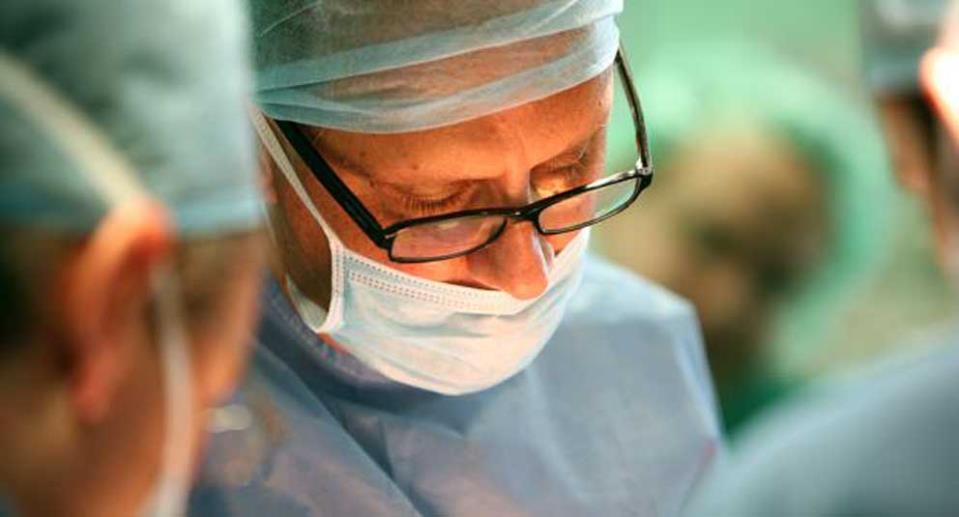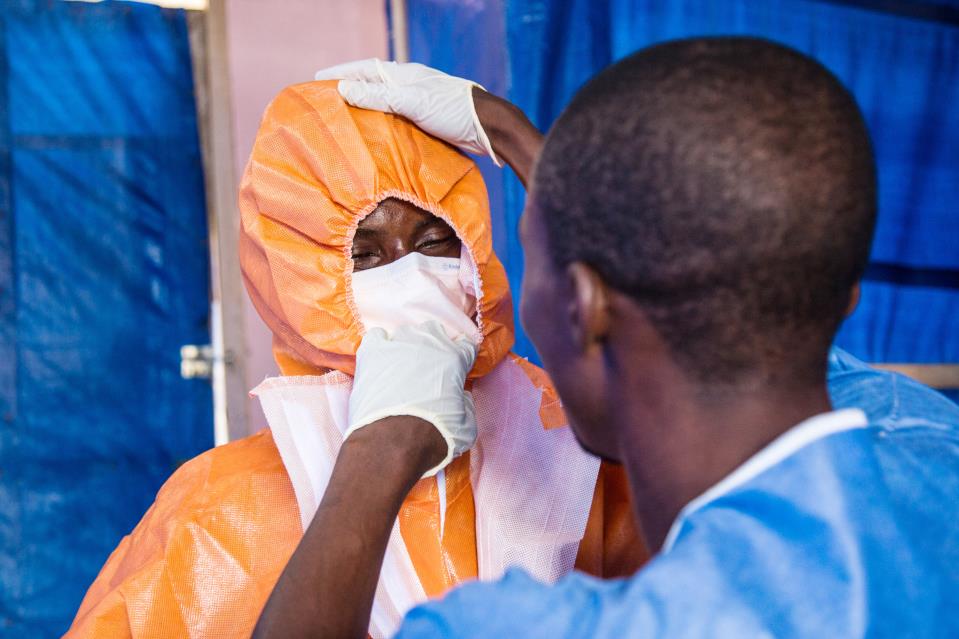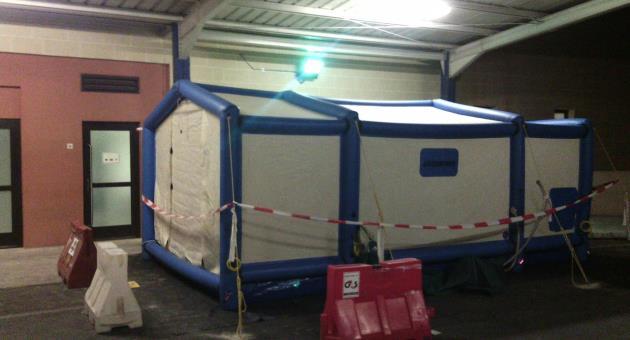The specially procured decontamination tent has inbuilt showers and a similar system as would be used by staff caring for any Ebola patients. Last month, Mater Dei started off the process of upgrading two rooms at the Infectious Disease Control Unit to strengthen the contingency plan in case of any suspected cases.
Speaking to this newsroom, Dr Caruana Dingli, who is also a consultant surgeon at Mater Dei Hospital, explained that Ebola has an incubation period, that is, the time interval from infection with the virus to onset of symptoms, of two to 21 days.
He was asked by this newsroom if it is remote that an Ebola case can reach Gozo.
"The major concern with respect to Malta, like every other country, is that the disease will enter Malta and that people will die of the disease. There is also a concern that it will affect health care workers and these must be provided with the highest possible standard of protective measures.
"The risk of the disease reaching Gozo is not very different from Malta as the ferry trip only takes half an hour," he said.
He added: "GPs must also provide the highest possible standards of care to all their patients and anyone suspected of having Ebola should be referred to hospital to receive intensive care and to be isolated and reduce the possibility of a spread."
Last week, the Health Department denied that there was a suspected case of Ebola in Gozo. A spokesperson for the Health Secretariat said that the Department of Health will continue taking all steps as recommended by the World Health Organisation (WHO).
Humans are not infectious until they develop symptoms. First symptoms are the sudden onset of fever fatigue, muscle pain, headache and sore throat. This is followed by vomiting, diarrhoea, rash, symptoms of impaired kidney and liver function, and in some cases, both internal and external bleeding (eg. oozing from the gums, blood in stools).
Sources in the medical profession told this newsroom that everybody in the health sector is exposed to such patients. They explained that patients suspecting to have contracted the fatal disease could decide to visit a private GP instead of going to a state hospital or polyclinic. This, in itself, could create a situation whereby the authorities wouldn't have a clue as to whether there could be a case of Ebola in the country since doctors do not always report the case to the authorities at the patient's request.

WHO/ECDC recommendations being put in place
The Ebola Virus Disease Monitoring Committee has been proactive in preparing staff and resources at the Gozo General Hospital and the preparedness in line with WHO.ECDC recommendations, according to the Health Department.
The same goes for Malta. Although the nursing union said that the Gozo hospital hasn't any Ebola proof suits available, the Health Department has said that preparedness includes protective equipment and the identification of an isolation area.
Malta is also one of only seven countries with availability of isolation equipment for medical evacuation purposes. The EVDMC is continually monitoring the international situation and is reacting accordingly, including improving on protective wear.
European officials say risk of Ebola spreading on continent highly unlikely
Earlier this month, European officials said the risk of Ebola spreading on the continent is highly unlikely, but it has not stopped countries across the region adopting a series of measures to make doubly sure.

Screening
Airlines that are still serving west Africa are taking the temperature of departing travellers, on the advice of the World Health Organisation.
Passengers with a fever are not supposed to travel until their state of health has been verified. But experts say there are loopholes, for example taking a paracetamol could bring down someone's temperature enough for them to travel.
Travellers reported to have symptoms in-flight are isolated and then taken away by a medical team on arrival.
Britain said it was introducing "enhanced screening" for Ebola at London's Heathrow and Gatwick airports, and at the terminal for the Eurostar train to France and Belgium.
The European Union will on October 17 discuss possible measures to reinforce controls on travellers from west African countries affected by Ebola, following similar measures at Washington DC and Ottawa airports.
Travel advice
Many European countries are advising against travel to the worst affected countries, particularly Guinea, Sierra Leone and Liberia.
Travellers leaving the affected region are being given leaflets telling them to check their temperature for 21 days, the incubation period for the virus, and to contact a doctor if they have a fever of 38 degrees Celsius (100.4 Fahrenheit) or above.
Medical personnel have been advised to check the history of patients who contact them with Ebola symptoms -- for example fever, headaches, vomiting -- and if in doubt to send them to one of the hospitals designated by each country for treatment of the virus.
These hospitals are equipped with negative pressure isolation rooms, protective material including gloves and overalls, and trained personnel.
In cases of confirmed infection, anybody linked to the patient will be monitored.
The EU on Wednesday said it was boosting efforts to spread the information more widely after medical staff in some countries complained they had not received it.

Repatriation plans
The EU has set up an evacuation plan for international medical workers in the Ebola zone, allowing patients to be flown within 48 hours to European hospitals "that are equipped to deal with the disease".
There have only been eight evacuations to Europe of foreign medical staff with Ebola, via military aircraft or a US charter airline.
The Spanish nurse who contracted Ebola at a Madrid hospital -- the first case of transmission outside Africa during the current outbreak -- caught it two missionaries were evacuated to Spain and treated at the same hospital. Both died.
Europe is meanwhile trying to find the resources to build an "air bridge" for evacuations, with Spain, France, Italy, Luxembourg, Belgium, Denmark and Norway all in talks to provide resources.
EU considers airport screening for Ebola
France and other European countries are considering following the lead of the US and Britain to start screening passengers arriving on flights from the West African countries hit hardest by the Ebola outbreak.
The French presidency said in a statement on Monday that Francois Hollande discussed the possibility of starting screening passengers from Liberia, Guinea and Sierra Leone during a phone call with US President Barack Obama.
France will also accept a request by Guinean authorities to set up additional Ebola treatment centers, the presidency said. France is already building one such centre in Guinea.
EU top health officials to hold anti Ebola talks today
In Brussels, the EU announced top health officials will hold a meeting today to see where they can cooperate better to contain the disease. EU spokesman Frederic Vincent said they would especially centre on whether there is a need to check passengers at EU airports.